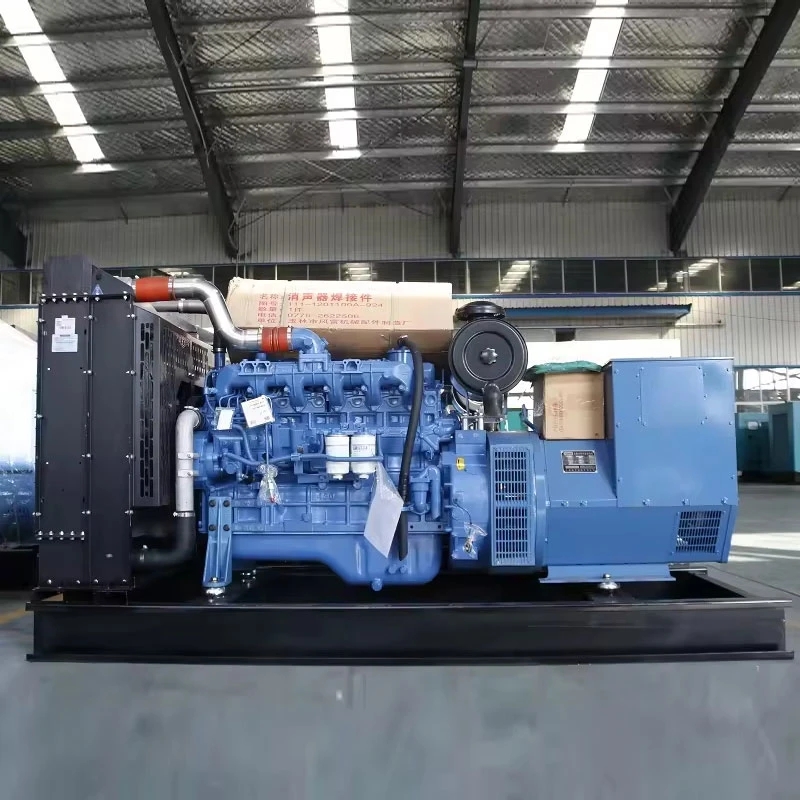Diesel Generators for Islanding Operation A Comprehensive Guide

Introduction
Diesel generators play a vital role in providing backup power during emergencies, especially in off-grid or remote areas. In islanding operation, diesel generators are used to supply power to isolated electrical systems when they are disconnected from the main grid. This ensures continuous electricity supply, critical for essential services and industries. This article will delve into the details of diesel generators for islanding operation, exploring their working principles, benefits, applications, maintenance requirements, and best practices.
Working Principles of Diesel Generators for Islanding Operation
Diesel generators operate on the principle of converting the chemical energy stored in diesel fuel into mechanical energy, which is then transformed into electrical energy. In islanding operation, the diesel generator acts as the primary source of power when the connection to the main grid is disrupted. The generator is equipped with an automatic transfer switch (ATS) that detects grid failure and initiates the islanding process.
During islanding operation, the ATS disconnects the electrical system from the main grid and connects it to the diesel generator. The generator starts automatically and begins supplying power to the isolated system. To maintain stability and balance in the electrical system, the generator needs to be synchronized with the load requirements. This is achieved through the use of advanced control systems that regulate the generator's output to match the demand.
Benefits of Using Diesel Generators for Islanding Operation
1. Reliability: Diesel generators are known for their reliability and robustness, making them ideal for islanding operation where uninterrupted power supply is crucial. They can provide continuous power for extended periods, ensuring that critical systems remain operational during grid outages.
2. Fuel Efficiency: Diesel generators are more fuel-efficient compared to other types of generators, such as gasoline or natural gas generators. This means that they can operate for longer durations on a single tank of fuel, reducing the need for frequent refueling in islanding scenarios.
3. Quick Start-Up Time: Diesel generators have a quick start-up time, allowing them to provide power almost instantly when the main grid fails. This rapid response is essential in maintaining the stability of the electrical system and preventing disruptions in critical operations.
4. Cost-Effectiveness: While diesel generators may have higher upfront costs compared to other power sources, they offer long-term cost savings due to their durability, fuel efficiency, and low maintenance requirements. In islanding operation, where reliability is paramount, diesel generators provide a cost-effective solution for backup power.
Applications of Diesel Generators for Islanding Operation
1. Remote Areas: Diesel generators are commonly used in remote areas where access to the main grid is limited or unreliable. These generators provide a reliable source of power for essential services such as hospitals, schools, and telecommunications facilities.
2. Critical Infrastructure: Diesel generators are essential for powering critical infrastructure such as data centers, water treatment plants, and emergency response facilities during grid outages. These facilities rely on uninterrupted power supply to ensure the safety and well-being of the community.
3. Off-Grid Systems: In off-grid systems, where electricity is generated independently of the main grid, diesel generators serve as a primary power source for meeting the energy demands of the system. They are often integrated with renewable energy sources such as solar or wind power to create hybrid systems that enhance reliability and sustainability.
Maintenance Requirements for Diesel Generators in Islanding Operation
Proper maintenance is essential to ensure the reliable performance of diesel generators in islanding operation. Regular maintenance tasks include:
1. Fuel System Inspection: Regularly inspect the fuel system for leaks, blockages, or contamination that can affect the generator's performance. Clean or replace fuel filters as needed to maintain fuel quality.
2. Cooling System Check: Check the cooling system for proper circulation and ensure that coolant levels are adequate. Overheating can damage the generator's engine, so it is important to monitor the temperature regularly.
3. Battery Maintenance: Inspect the battery for corrosion, loose connections, or low electrolyte levels. Proper battery maintenance is essential for ensuring quick start-up times during grid outages.
4. Lubrication: Regularly lubricate the generator's moving parts to reduce friction and prolong the life of the engine. Use high-quality lubricants recommended by the manufacturer for optimal performance.
5. Load Testing: Periodically conduct load tests to ensure that the generator can meet the required power demands during islanding operation. This helps identify any issues with the generator's capacity or performance.
Best Practices for Operating Diesel Generators in Islanding Operation
1. Regular Testing: Conduct regular tests of the diesel generator to ensure that it is functioning properly and can seamlessly transition to islanding operation when needed. Test the automatic transfer switch and control systems to verify their reliability.

2. Monitoring and Remote Control: Implement monitoring systems that allow remote monitoring and control of the diesel generator. This enables quick response to alarms or issues, improving the overall reliability of the islanding system.
3. Training and Documentation: Provide training to personnel responsible for operating and maintaining the diesel generator in islanding operation. Maintain detailed documentation of maintenance activities, test results, and operational procedures for reference.
4. Emergency Preparedness: Develop a comprehensive emergency response plan that outlines procedures for responding to grid failures and islanding operation. Ensure that all personnel are aware of their roles and responsibilities during emergencies.
Conclusion
Diesel generators play a critical role in islanding operation, providing reliable backup power during grid outages in off-grid or remote areas. By understanding https://www.lkpowerplant.com/product/quick-delivery-emergency-standby-power-400kw-silent-type-diesel-generator-set-for-peru/ working principles, benefits, applications, maintenance requirements, and best practices associated with diesel generators, operators can ensure the seamless operation of their islanding systems. With proper maintenance and regular testing, diesel generators can serve as a dependable source of power, safeguarding essential services and infrastructure in times of need.
